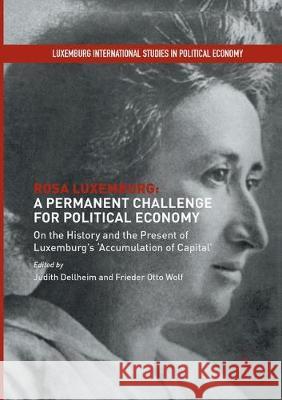Rosa Luxemburg: A Permanent Challenge for Political Economy: On the History and the Present of Luxemburg's 'Accumulation of Capital' » książka
topmenu
Rosa Luxemburg: A Permanent Challenge for Political Economy: On the History and the Present of Luxemburg's 'Accumulation of Capital'
ISBN-13: 9781349956166 / Angielski / Miękka / 2018 / 355 str.
Rosa Luxemburg: A Permanent Challenge for Political Economy: On the History and the Present of Luxemburg's 'Accumulation of Capital'
ISBN-13: 9781349956166 / Angielski / Miękka / 2018 / 355 str.
cena 403,47
(netto: 384,26 VAT: 5%)
Najniższa cena z 30 dni: 385,52
(netto: 384,26 VAT: 5%)
Najniższa cena z 30 dni: 385,52
Termin realizacji zamówienia:
ok. 22 dni roboczych
Bez gwarancji dostawy przed świętami
ok. 22 dni roboczych
Bez gwarancji dostawy przed świętami
Darmowa dostawa!
Kategorie BISAC:
Wydawca:
Palgrave MacMillan
Seria wydawnicza:
Język:
Angielski
ISBN-13:
9781349956166
Rok wydania:
2018
Wydanie:
Softcover Repri
Ilość stron:
355
Waga:
0.45 kg
Wymiary:
21.01 x 14.81 x 2.01
Oprawa:
Miękka
Wolumenów:
01
Dodatkowe informacje:
Wydanie ilustrowane











